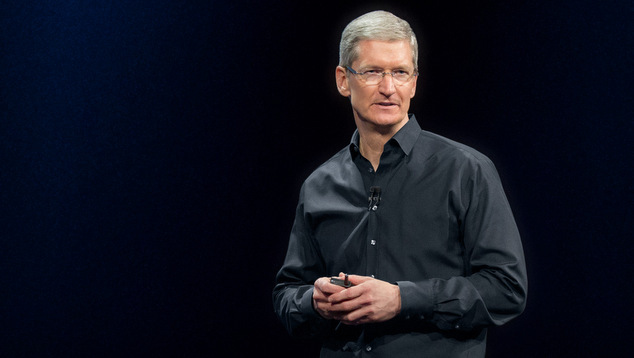On this day in 2014 Apple CEO Tim Cook informed the public what he was “proud to be gay” via an essay published in Bloomberg Businessweek
“Throughout my professional life, I’ve tried to maintain a basic level of privacy. I come from humble roots, and I don’t seek to draw attention to myself.” Cook wrote.
“At the same time, I believe deeply in the words of Dr. Martin Luther King, who said: “Life’s most persistent and urgent question is, ‘What are you doing for others?’ ”

“For years, I’ve been open with many people about my sexual orientation. Plenty of colleagues at Apple know I’m gay, and it doesn’t seem to make a difference in the way they treat me. Of course, I’ve had the good fortune to work at a company that loves creativity and innovation and knows it can only flourish when you embrace people’s differences. Not everyone is so lucky.
“While I have never denied my sexuality, I haven’t publicly acknowledged it either, until now. So let me be clear: I’m proud to be gay, and I consider being gay among the greatest gifts God has given me.”
In the essay he explained that although privacy was important to him, he felt that being open and proud of his sexuality was his small part in helping others. “We pave the sunlit path toward justice together, brick by brick. This is my brick.” he concluded.
In coming out Cook became the first CEO of a Fortune 500 company who was open about their homosexuality. He later reflected on his decision to be more open about his sexuality saying he hoped it would help young LGBTIQA+ people.
Cook joined Apple in 1998 as a Senior Vice President of World-wide Operations. He became the CEO of the company is August 2011 following the death of founder Steve Jobs.
Alongside his role at Apple, Cook is also on the board of Nike, and the USA’s National Football Federation, he additionally serves as a trustee of Duke University.
In 1944 Composer Aaron Copland’s Appalachian Spring is performed for the first time
Appalachian Spring is one of the most admired works by composer Aaron Copland, surpassed perhaps only by his earlier work Fanfare for the Common Man.
The composer is remembered for his ability to compose classical music that captured the feeling of the American landscape and patriotism.
Born in New York in 1900, his family were immigrants who had come to America from Lithuania via Scotland, along the way changing their name from Kaplan to Copland. The young Aaron Copland began composing music at an early age and went on to study at the Brooklyn Academy of Music.
After further study in Paris, and travelling around Europe he returned to the USA where he began his career as a composer.
Appalachian Spring (A Ballet) was commissioned by choreographer Martha Graham, and the work made it’s debut at the USA’s Library of Congress on October 30, 1944 with Graham dancing the lead role.
Copland later spoke about how it amused him when people told him the score perfectly captured the feeling of the Appalachian Mountains, because the decision to name the piece Appalachian Spring came after the music was written.
He had originally simply titled the piece Ballet for Martha, and it was Graham who suggested naming the piece, taking inspiration from a Hart Crame poem.
Over his life Copland created over 100 works. He died in 1990, just a few weeks after his 90th birthday.
This post was first published in 2021.




